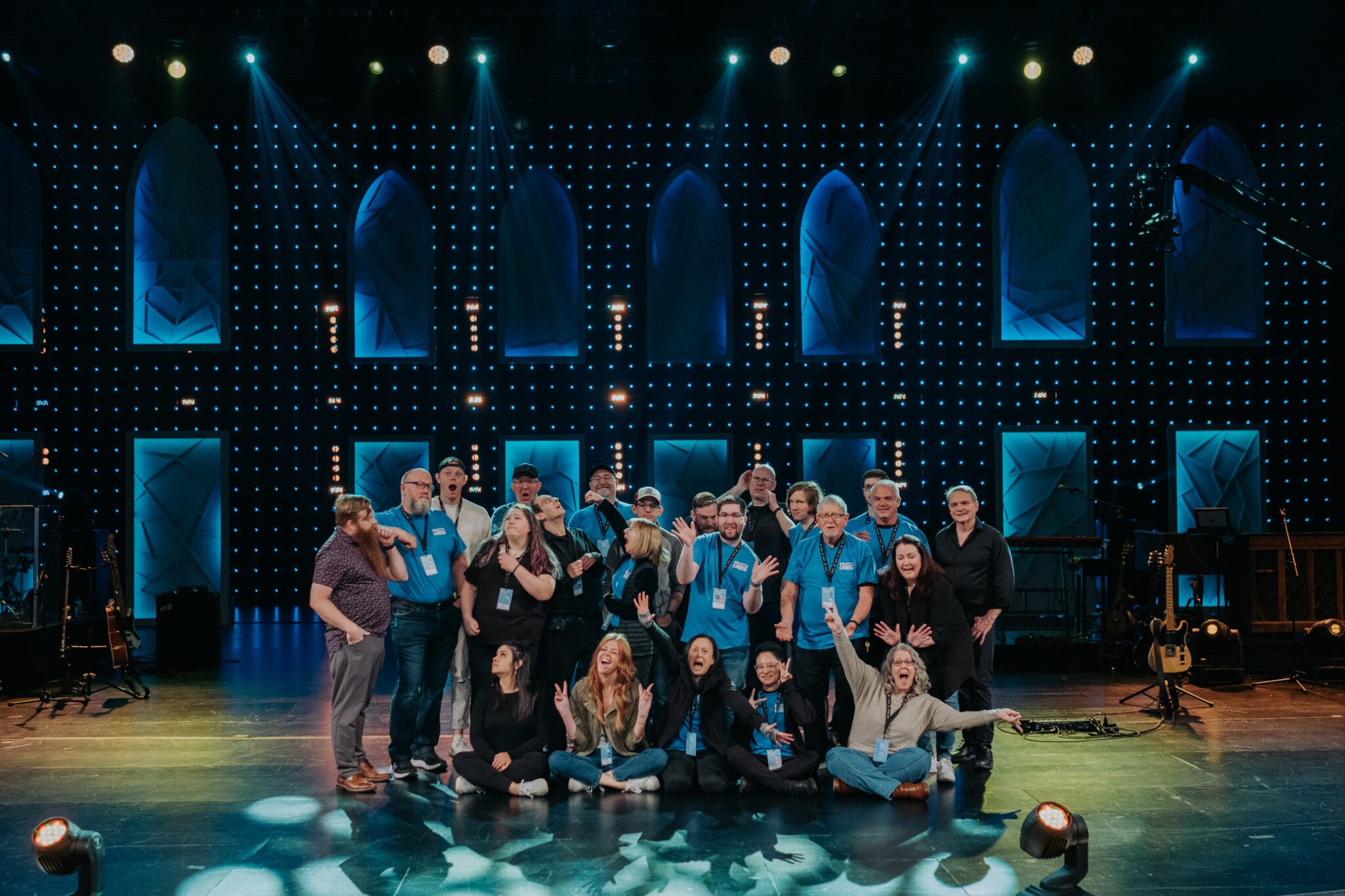I go to events at my kids’ school quite often, and quite often (always) there are problems with the production. Mics not working, lights turning on and off randomly, switching between the desktop and PowerPoint while it is live to the screen.
For a long time, I have been able to sit idly by and take it. I didn’t offer to help, because I figured if I started to volunteer, I would just get sucked into helping all the time.
Finally, we were at some sports night or something and it was so bad, I wanted to crawl under my chair. My daughter kept patting me on the shoulder “It’s alright daddy. Everything will be alright.” This experience tipped me over into offering to help. The first opportunity was yesterday.

I was in the booth, alone, running audio, video, and lighting. Our school is a ministry of a church, and so we were using the sanctuary built in the late ’80s with the production “room” in the back corner. Switching projector inputs with the remote, 24 randomly ordered light switches on the wall, and more A/B audio switches than I could keep track of. And the fan noise! I could barely hear myself think, let alone hear what was going on in the room where the people were.
In the process of this event, I learned a couple of things about production.
The first one is that those of you who work the smaller venue with less than ideal equipment, are amazing! What you do week in and week out is nothing short of incredible. Being the only person in the booth doing all the production is not simple. Usually, in smaller venues, the conditions aren’t the best, and regardless you deal out the technical arts every week at your church. In many ways, it makes what I do every week seem easy and simple. Way to go, and keep it up. You should be proud of what you do.
The second is, there is a ton that you can do with very little. Here were a few ideas:
Know what your equipment can and can’t do, and invest your time and energy in making it work properly. Many of my issues came from not working in the venue all the time. After a while, I think I would figure out how stuff is supposed to work. I also know that the pile of to-be-fixed items was pretty big. It doesn’t help to invest in equipment if it will eventually just sit idle because it has stopped working. Find volunteers who can solder, or hire a company that you trust to fix your equipment. Help your leadership understand the need to spend resources to keep equipment functioning. The church has already invested in the equipment and then having it sit unused is a waste of that investment.
Develop procedures to work with your venue’s limitations. In my instance, there was really no way around all the random lighting switches, so one of the students had taken pictures of how the switches should look for each type of element: video roll, piano solo, etc. The switches were awful, but the picture made it possible to have a successful event.
Keep things as simple as possible. I know that when you are working with limited resources it can be easy to start jerry-rigging stuff to make it do what you want. If one of the goals of production is to create a distraction-free environment, making things so complicated does not help the operator succeed. If volunteers are expected to come in every 3rd week and succeed, making things complicated is setting them up to fail. (Check out this great post by @KalebWilcox: Keep it Simple)
Again, for those of you in this type of situation each week, I applaud you! Way to go. I’m looking forward to my next school event…now that I know which A/B switch gets audio from DVD player #1 to the console.










